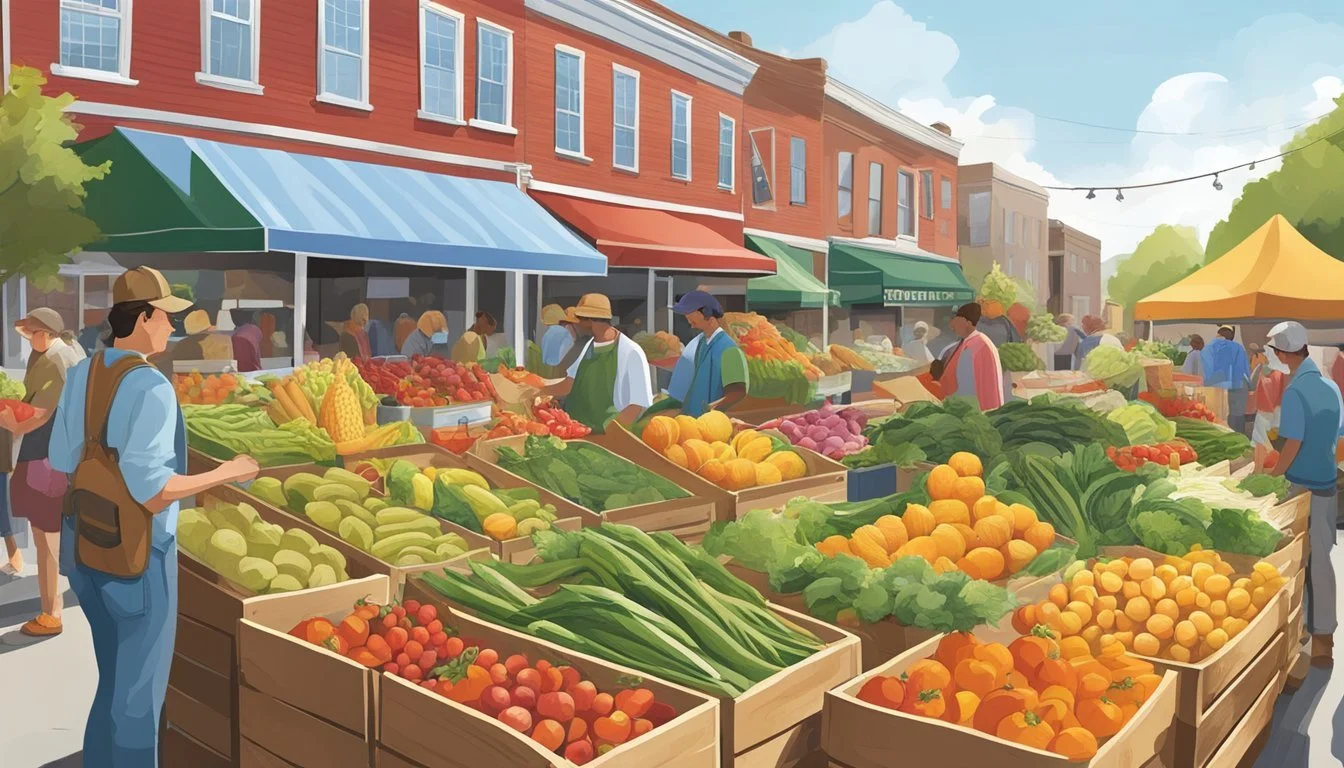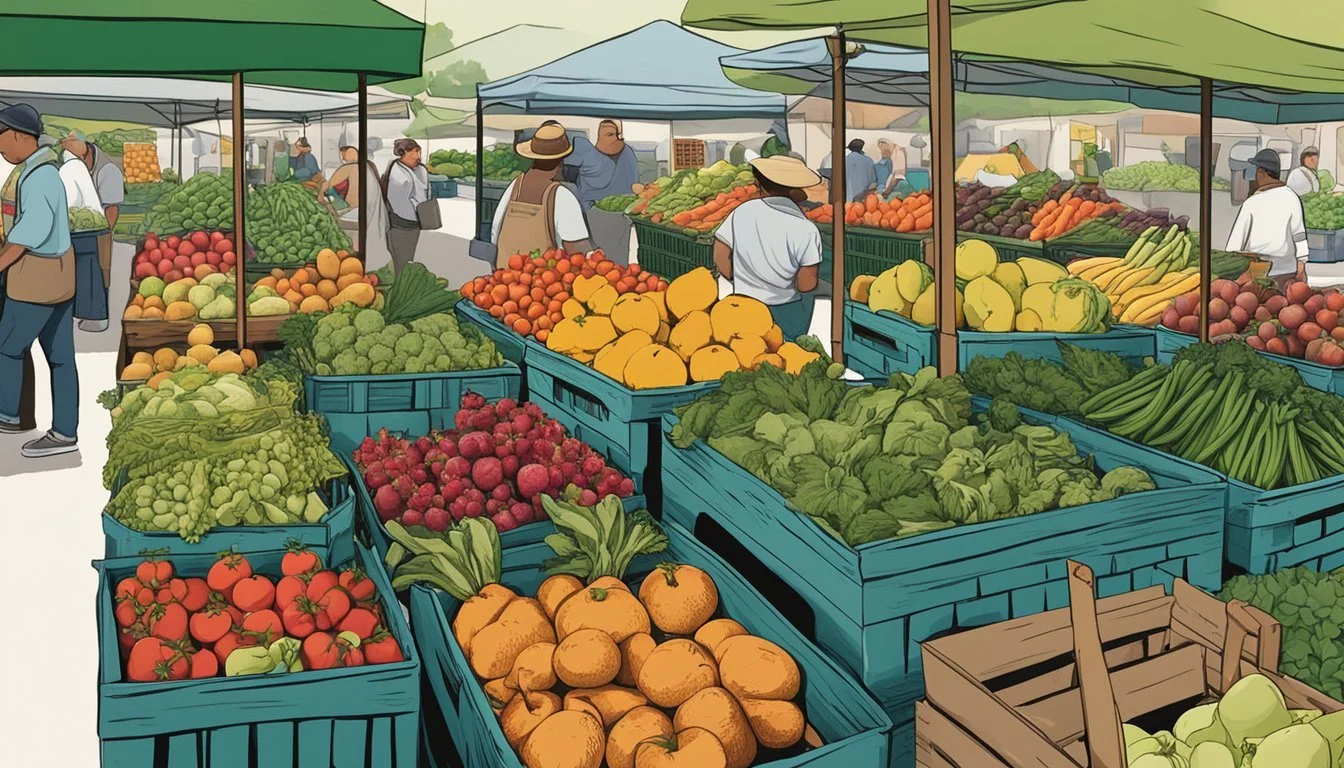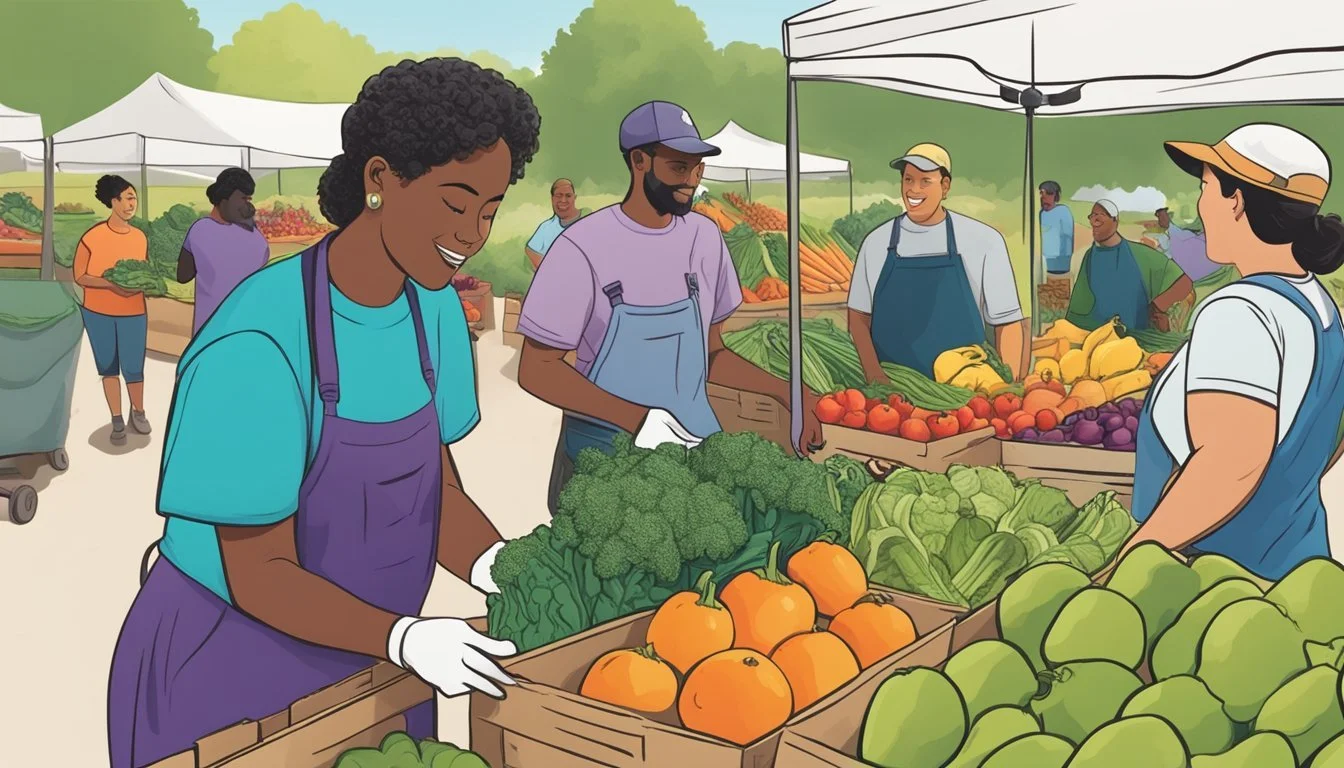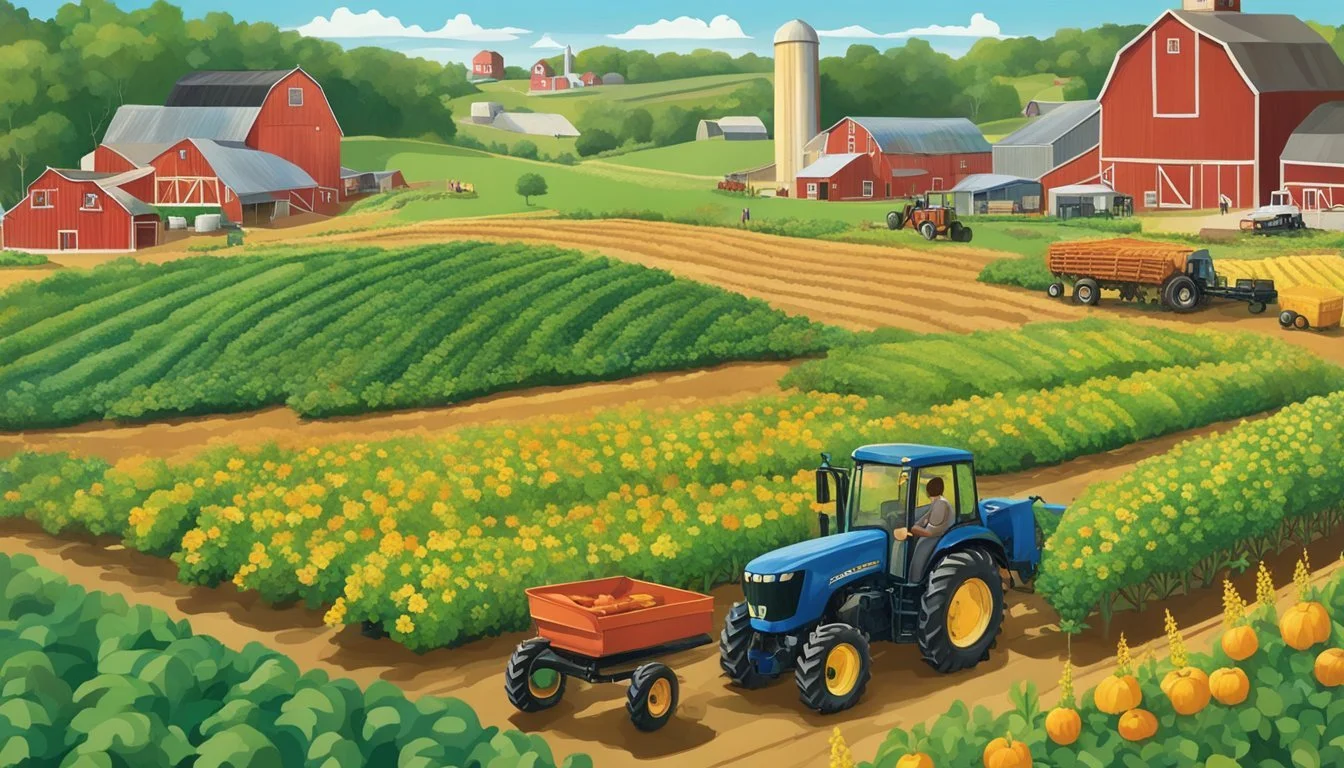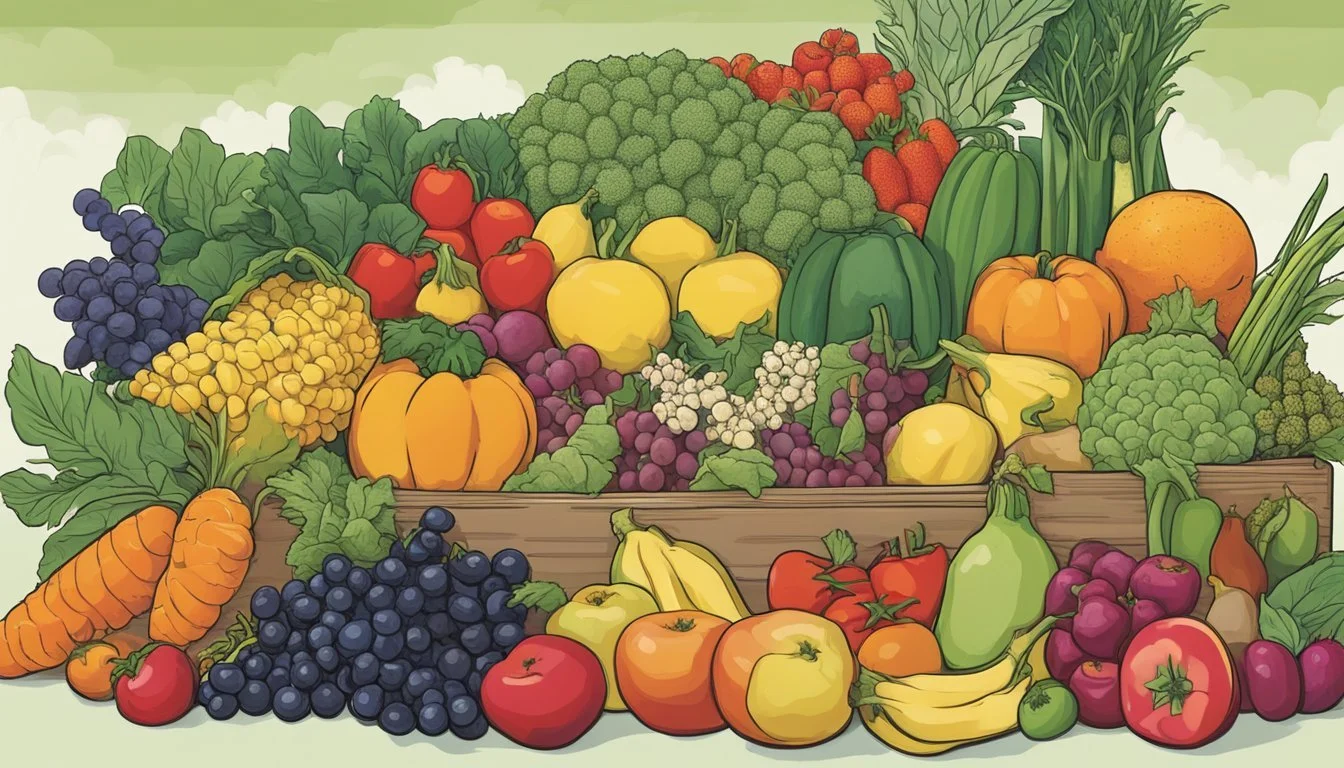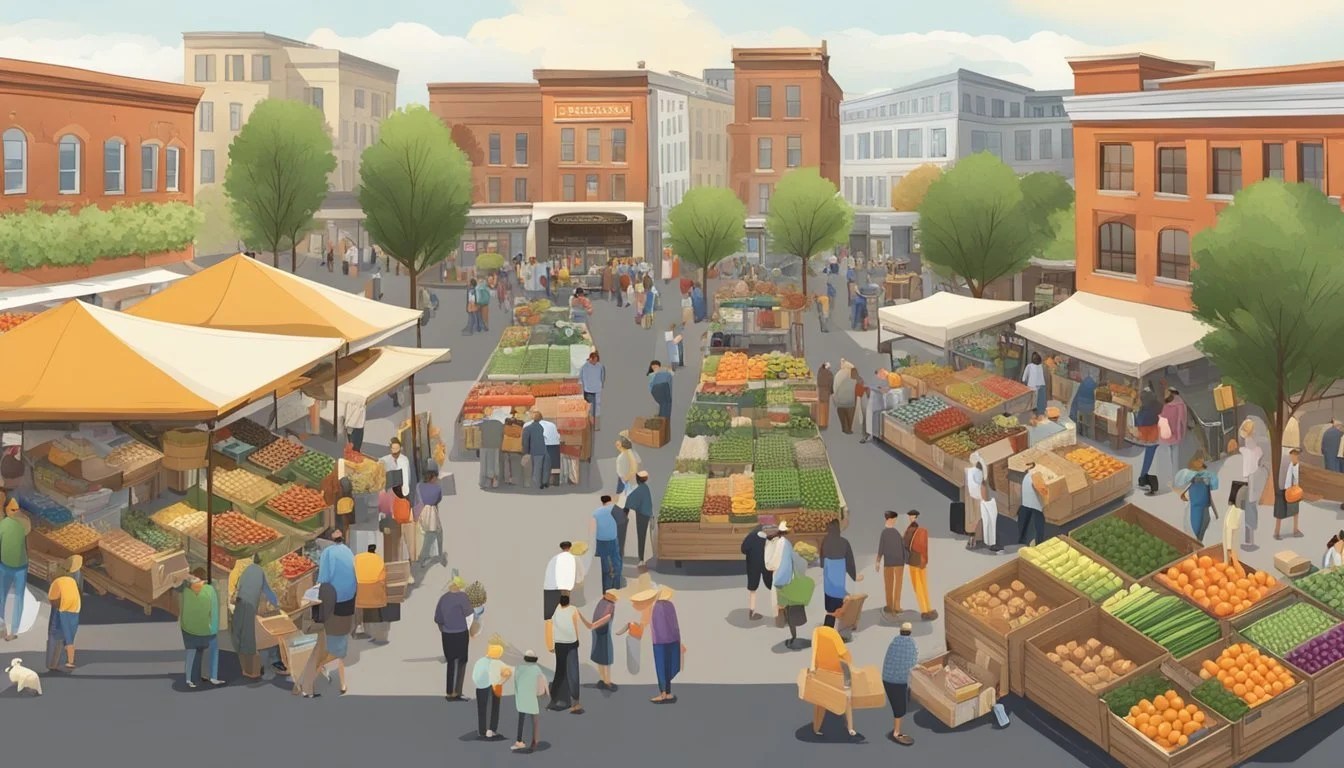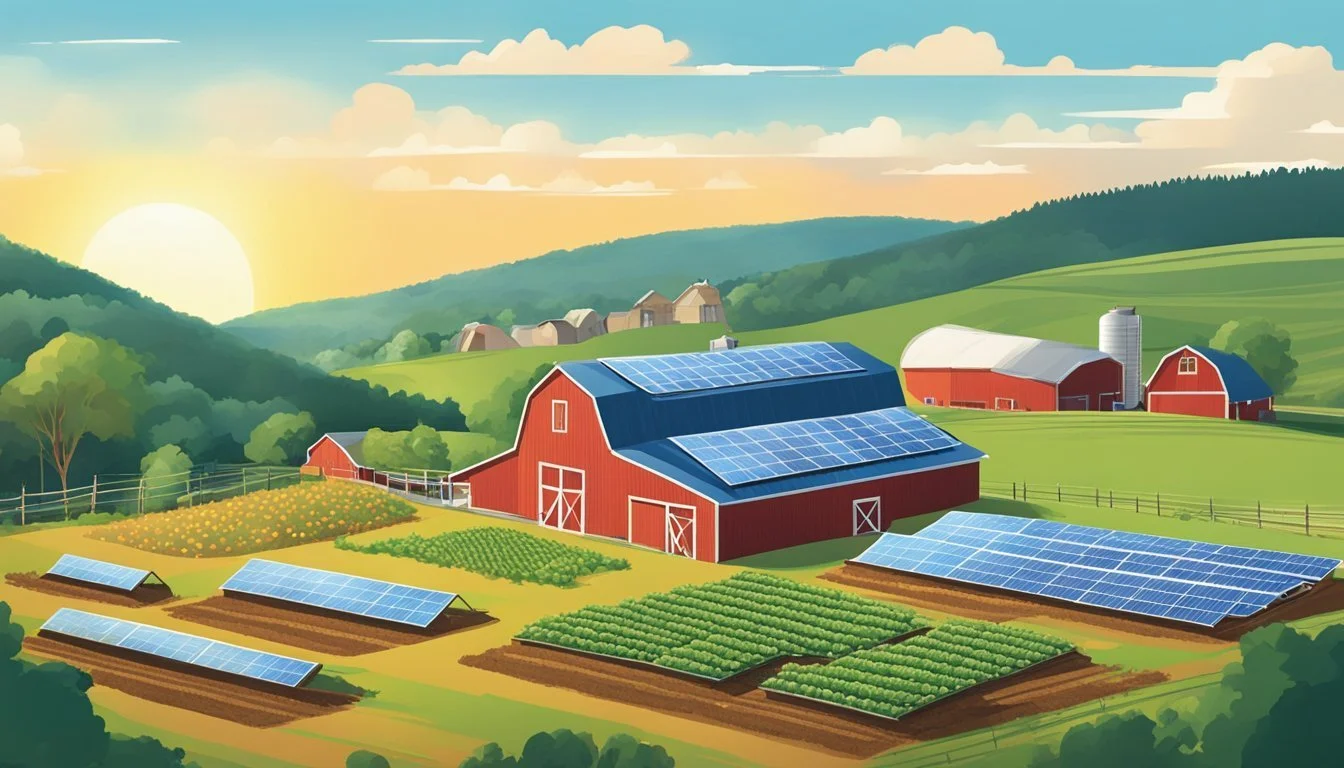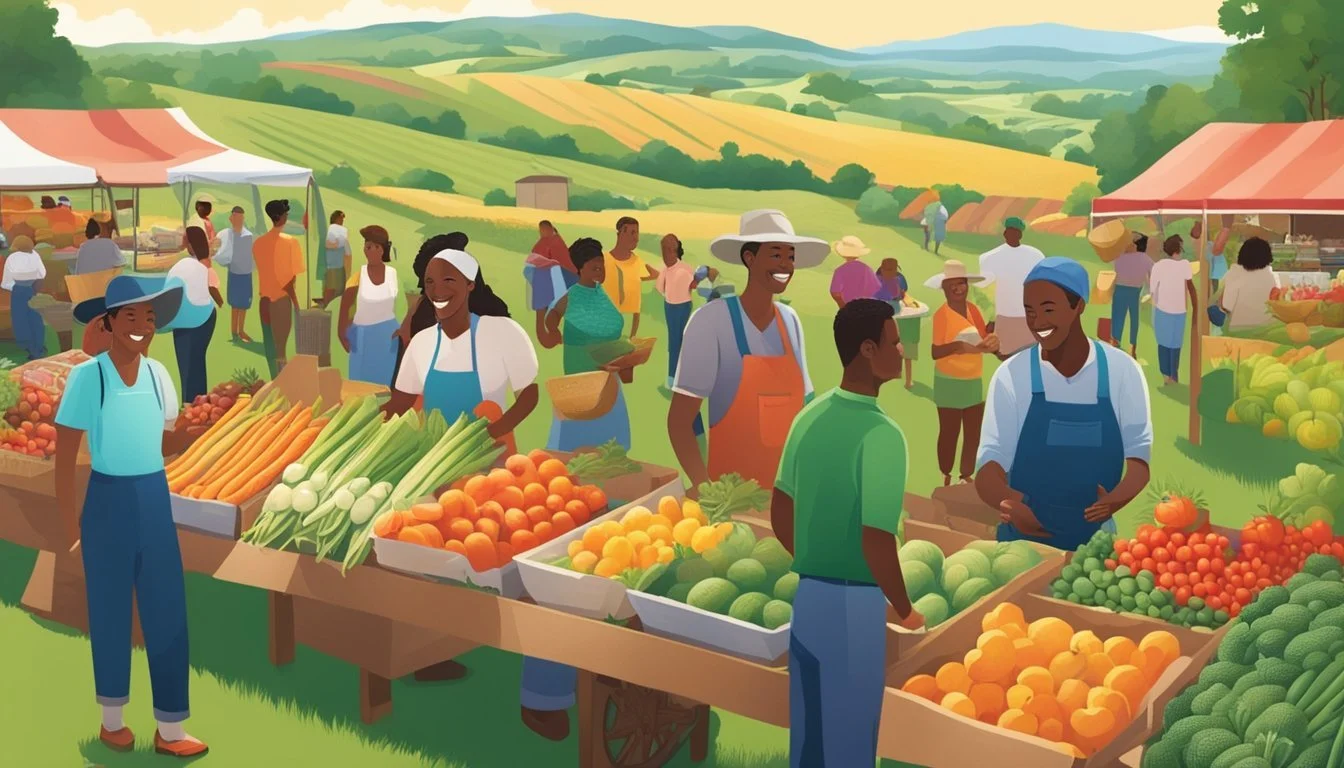Community Supported Agriculture (CSA) in Rhode Island
A Guide to Local Farm Partnerships
Community Supported Agriculture (CSA) has taken root in Rhode Island as a popular means for consumers to buy local, seasonal food directly from a farmer. Through a CSA, a farmer offers a certain number of "shares" to the public, typically consisting of a box of vegetables, but other farm products may be included. Interested consumers purchase a share and in return receive a weekly supply of fresh produce throughout the farming season. This model benefits both the farmer, who receives early-season capital to manage the farm's cash flow, and the consumers, who enjoy the benefits of fresh food while supporting local agriculture.
Across Rhode Island, several farms offer CSA programs, each integrating their unique practices and offerings. The relationship between the farm and the community is strengthened by the weekly distribution of a portion of the farm's harvest, connecting residents directly to the source of their food. This direct market opportunity provides a reliable income to farms like Shewatuck Farm in North Kingstown, which offers summer CSA programs.
CSA in Rhode Island is not just limited to providing food; it's an educational experience for many. Farms like Casey Farm in Saunderstown engage community members through farming education programs alongside their CSA. By participating in a CSA program, Rhode Islanders not only gain access to fresh, organic produce but also contribute to the sustainability of local farms and the health of the environment. Each farm offers a unique approach to CSA, some with certified organic produce, and some combining traditional farming techniques with modern sustainability practices to foster a more direct and responsible relationship with agriculture.
Understanding CSA
Community Supported Agriculture (CSA) in Rhode Island facilitates a symbiotic relationship between local farms and community members. Through membership and shares in the CSA, consumers support farmers directly, ensuring a supply of fresh, local produce.
Concept of CSA
CSA embodies a partnership model wherein consumers become members by purchasing shares of a farm's harvest in advance. This model provides the farmer with early season capital and enables members to partake in the farm's bounty throughout the growing season. In Rhode Island, CSA members typically receive a portion of the farm's produce, which can include a variety of vegetables, fruits, herbs, and sometimes additional farm products.
Benefits for Consumers and Farmers
Consumers benefit from CSA in several ways:
Access to fresh produce: CSA members enjoy weekly deliveries or pick-ups of fresh, typically organic, produce directly from the farm.
Healthier eating habits: Being a part of a CSA encourages a diet centered around seasonal, locally grown food.
Connection with the farm: Members gain a deeper understanding of how their food is grown and develop a relationship with the land and the farmer.
Farmers also reap significant benefits:
Financial support: Pre-paid CSA memberships provide farmers with essential early season capital.
Reduced waste: Knowing the number of people they are growing for helps farmers plan better and reduce excess produce.
Community engagement: CSA fosters a sense of community and provides farmers with feedback and support from their members.
Core Principles of CSA
The CSA movement is grounded in several core principles:
Community engagement: CSAs drive the creation of a community around a farm, where members share both the risks and rewards of agriculture.
Local economy: By participating in CSA, consumers are investing in their local economy and helping to preserve local farming.
Sustainable practices: CSA farms typically use organic or other sustainable farming methods, which contribute to environmental health.
Education: CSAs often serve as an educational resource, teaching members about farming practices and seasonal eating.
In Rhode Island, CSA programs emphasize these principles, cultivating a robust network between farmers and community members.
History and Evolution of CSA in Rhode Island
Community Supported Agriculture (CSA) in Rhode Island has a rich heritage, anchored by pioneering farms like Casey Farm, with efforts preserving both agricultural practices and local history. This section explores the transition from early CSA beginnings in the state to the model's more contemporary adaptations.
Early Beginnings
In Rhode Island, the CSA movement took solid roots with Casey Farm playing a significant role. By 1994, this historic farm had the distinction of offering the first USDA-certified organic CSA shares in Rhode Island. The farm is part of Historic New England, an organization that aims to preserve the region's history, which includes the evolution of agriculture. These early CSA programs provided a stable income for farmers while offering a weekly supply of fresh, locally-grown produce.
Recent Developments
The CSA model in Rhode Island has continued to evolve, integrating organic farming and educational programs into its framework. Casey Farm, for example, not only provides organically grown produce but also hosts farm-based education programs. These initiatives help in fostering a deeper community connection and understanding of sustainable agriculture. CSA in Rhode Island has thus grown beyond just a method of farming into a comprehensive, community-involved movement.
How CSA Works
Community Supported Agriculture (CSA) in Rhode Island operates on a membership or subscription basis. Members commit to supporting local farms and in return, receive a portion of the farm's produce throughout the growing season.
Membership and Subscription Models
CSA members in Rhode Island typically subscribe by purchasing a share before the harvest season begins. This financial commitment provides the farms with up-front capital to cover anticipated costs of farm operations. There are usually multiple subscription options available, including:
Full Share: Ideal for larger households, providing ample produce usually sufficient for 3-4 people.
Half Share: A smaller option, suitable for individuals or couples.
Subscriptions are often customizable based on the members' consumption needs and preferences.
Seasonal Schedule and Produce Availability
CSA farms in Rhode Island have a defined seasonal schedule that guides the availability of produce. A standard CSA season might run:
Weekly Share: From mid-June through the end of the season, members receive weekly allotments of produce.
Fall Share: Some farms offer an extended season that focuses on crops that thrive in cooler autumn temperatures.
The types of produce available will vary throughout the season, reflecting what is seasonally ready for harvest.
Share Types Offered
Rhode Island CSA farms often provide a diversity of share types to their members, which may include:
Vegetables
Fruits
Herbs
Flowers
The deliverables are usually a mix of field and greenhouse-grown items, ensuring a varied assortment from week to week. The content of a share is determined by the farms' current harvest, which promotes a direct connection between members and the seasonal rhythms of local agriculture.
CSA Farms in Rhode Island
Rhode Island's agricultural community thrives through a network of Community Supported Agriculture (CSA) farms. These programs enable residents to directly support local farming by purchasing seasonal produce shares, fostering a closer bond between consumers and the land that feeds them.
Casey Farm
Casey Farm, situated on 2325 Boston Neck Road in Saunderstown, stands out as a prominent CSA provider in Rhode Island. As a historic site under the stewardship of Historic New England, it operates as a USDA Certified Organic farm. Members of the Casey Farm CSA receive a weekly selection of organic vegetables, fruits, herbs, and flowers. The program runs from mid-June to the end of the season, with produce picked fresh for peak flavor and nutrition. In addition to produce, the farm is known for its heritage-breed poultry and educational opportunities. Interested parties can contact the farm office or visit their website for more information or to sign up.
Other Notable CSA Programs
Rhode Island hosts a variety of other CSA programs across the state. These include:
CSA Shewatuck Farm, located on 140 Exeter Road, North Kingstown. It is a part of the Rhode Island Farm Incubator and offers a summer CSA serving areas including North Kingstown, Providence, and Washington County.
Community-supported farms in areas such as Exeter and Jamestown, which provide an assortment of traditional, heirloom, and exotic vegetables, along with other farm products like pasture-raised eggs and flowers.
Each CSA has a unique set of offerings and membership structures, with additional details available through their respective websites or contact points. Residents of Rhode Island are encouraged to explore these local options to become part of the sustainable agriculture movement within their community.
Organic and Local Produce
Community Supported Agriculture in Rhode Island is a testament to the state's commitment to sustainable and locally sourced food. It features a variety of organic foods, including vegetables, fruits, flowers, and herbs.
Certification and Standards
Produce labeled certified organic in Rhode Island adheres to strict guidelines established by the USDA. Farmers must follow a set of practices that promote ecological balance, conserve biodiversity, and maintain soil and water quality. To earn organic certification, farms undergo rigorous inspections to ensure that their vegetables and fruits meet all organic regulations. For example, Casey Farm in Saunderstown, RI, offers an array of USDA Certified Organic produce, affirming their compliance with national organic standards.
Benefits of Local and Organic Products
Purchasing local and organic products from Rhode Island CSA farms offers several advantages:
Freshness: With shorter travel distances, crops like herbs and small fruits are harvested at their peak and reach the consumer faster.
Health: Local organic produce is expected to have fewer pesticides and additives.
Economy: Buying local supports the state’s economy and secures the livelihoods of small-scale farmers.
Environment: Organic practices utilized by farms like Heirloom Harvest in Westborough, MA, contribute positively to the local ecosystem by avoiding harmful chemicals.
Local food initiatives in the state, such as those found in farmers markets and Rhode Island Farm Incubator projects, place importance on both environmental sustainability and community enrichment.
Seasonal Offerings and Crop Selection
Rhode Island's CSA programs provide a diverse array of fresh produce tailored to the growing seasons. Members typically receive a weekly assortment, ensuring a varied diet throughout the year.
Spring Shares
Spring shares are known for offering an early taste of the season's bounty. Customers can expect a range of leafy greens and root vegetables, such as:
Lettuce: Tender and crisp, perfect for salads.
Radishes: Peppery and crunchy, a flavorful addition to dishes.
Scallions: Mild and versatile, suitable for garnishing and cooking.
Also prevalent are snap peas, with their sweet and snappy pods, and chard, known for its vividly colored stems and nutrient-rich leaves.
Summer Shares
Summer ushers in a wider assortment of produce, which often includes:
Tomatoes: Juicy and ripe, ideal for sandwiches and salads.
Cucumbers: Refreshing and crisp, a staple in cool dishes.
Peppers: From sweet to hot, they add zest to any summer meal.
Blueberries: Plump and sweet, they're a favorite for snacking and desserts.
The heat-loving sweet potatoes also begin to make an appearance, alongside a variety of other flavorful vegetables.
Fall and Winter Shares
As temperatures drop, CSA offerings transition to hearty vegetables that store well, such as:
Garlic: Aromatic and pungent, a base for countless recipes.
Potatoes: Earthy and filling, suitable for a myriad of preparations.
Winter Squash: Rich and versatile, from soups to roasts.
Apples: Sweet or tart, they're a staple of fall harvests.
These crops, alongside others like salad turnips and sweet potatoes, are often featured in fall and winter shares, providing nourishment and comfort during the colder months.
Community and Economic Impact
Community Supported Agriculture in Rhode Island significantly bolsters local agriculture and reinforces the symbiotic relationship between local farmers and communities. It plays a vital role in strengthening the local economy while actively fostering community engagement and education.
Supporting Local Farmers
Community Supported Agriculture programs, such as the one offered at Shewatuck Farm in North Kingstown, serve as vital lifelines to local farmers. They provide stable, upfront revenue that helps farmers plan their crop cycles and reduces the financial uncertainties associated with farming. CSA members contribute directly to the sustainability of local farming by sharing in the risk and bounty of agricultural production. This direct support is crucial for a state with rich agricultural heritage.
Local Farmer Support:
Prepaid CSA shares: Stability and predictable income.
Risk sharing: Members bear some of the unpredictabilities of farming.
Boosting Local Economy
Through CSAs, consumer dollars circulate within Rhode Island’s economy, promoting the growth of ancillary businesses, like local food processors and farm equipment suppliers. Spending at farmers markets often spurs mutual benefits for other nearby local businesses. As residents purchase shares of local agricultural produce, they reinforce the local economy, creating what’s known as the multiplier effect: each dollar spent can create a ripple, increasing its overall impact.
Economic Contributions:
Multiplier effect: Local spending stimulates further economic activity.
Job creation: CSAs and related businesses contribute to employment.
Community Engagement and Education
CSAs inherently promote community engagement. Providence and Washington County residents can join farm activities, which cultivates a deeper understanding of where their food comes from. Educational initiatives, sometimes hosted by operations like Casey Farm in Saunderstown, offer opportunities for members, including families and school groups, to learn about organic farming and sustainability. Such programs not only educate but also build a sense of community by connecting people to their local food system and each other.
Engagement Opportunities:
Farm visits: Involve the community in the farming process.
Workshops: Educational sessions on organic practices and sustainability.
Environmental Sustainability
Community Supported Agriculture (CSA) in Rhode Island plays a pivotal role in promoting environmental sustainability through its local food systems. By implementing sustainable agricultural practices and reducing the carbon footprint associated with food transport, CSAs contribute to healthier food options and a healthier planet.
Sustainable Agricultural Practices
CSAs in Rhode Island adhere to practices that aim to maintain the health of the soil and the surrounding ecosystem. Many farms use organic methods to manage pests and fertilize crops, which reduces the use of harmful chemicals in agriculture. By doing so, these farms support biodiversity and safeguard local water sources from pollution. Sustainable food production also means taking steps to ensure that the farmland remains productive and viable for future generations.
Organic farming: Reduces the reliance on synthetic pesticides and fertilizers.
Crop rotation: Prevents soil degradation and reduces disease and pest outbreaks.
Cover cropping: Enhances soil fertility and protects against erosion.
Reducing Food Miles and Carbon Footprint
The CSA model significantly reduces food miles, referring to the distance food travels from the farm to the consumer's plate. Shorter food miles mean less transportation is required, which in turn lowers greenhouse gas emissions and the overall carbon footprint of food systems.
Local distribution: CSA shares are often distributed within a short radius, diminishing transport emissions.
Seasonal eating: CSA members eat seasonally, meaning less energy is spent on storage and transportation of out-of-season produce.
Supporting CSAs ultimately encourages the shift toward a sustainable and environmentally conscious food system in Rhode Island.
Health Benefits and Nutrition
Community Supported Agriculture (CSA) in Rhode Island not only bolsters local farms but also contributes to better health outcomes. It does so by enhancing diet quality and promoting the intake of fresh fruits and vegetables—both key components of nutritional health.
Improving Diet Quality
Participation in CSA programs in Rhode Island results in households receiving a consistent supply of fresh, often organic produce directly from local farms. This proximity to the source of produce ensures that individuals have access to nutrient-rich food options. Fresh, organic produce is linked to a lower presence of pesticides and potentially a higher concentration of antioxidants compared to conventionally grown food. When individuals incorporate CSA produce into their meals, they're more likely to meet dietary recommendations for vital nutrients essential for health and well-being.
Encouraging Fruit and Vegetable Consumption
CSA programs inherently encourage an increase in fruit and vegetable consumption. Evidence indicates that those who participate in CSAs tend to have a higher intake of fruits and vegetables. This means more vitamins, minerals, and dietary fibers in their diet—a foundational aspect of proper nutrition. Increased consumption can have multiple health benefits, including the potential reduction in risk for chronic diseases such as heart disease, diabetes, and certain cancers.
By connecting consumers with local farmers, CSA programs in Rhode Island create a symbiotic relationship that feeds into the cycle of healthful eating and, subsequently, a healthier population.
Participation and Access
Participation in Community Supported Agriculture (CSA) programs in Rhode Island is straightforward, involving a sign-up process for shares. The programs also acknowledge the importance of accessibility, particularly for low-income households, ensuring that fresh, local produce reaches different community members.
Signing Up for CSA Shares
Individuals looking to participate in a CSA in Rhode Island simply need to sign up for a share. A "full" share typically provides enough produce for a family of 4-5, whereas a "half" share is sufficient for 2-3 people. Locations for CSA pickups are spread across regions like North Kingstown, Providence, and Washington County, providing multiple options for members. Facilities often have ample parking available to accommodate members during their pickup times.
Accessibility for Low-Income Households
Rhode Island CSA programs are often cognizant of the economic barriers some members of the community face. Therefore, they strive to improve accessibility for low-income households, ensuring equitable access to nutritious foods. Many CSA programs may offer discounts or tailored payment plans to assist those in need. Additionally, some farms may accept supplemental nutrition assistance program (SNAP) benefits, which further enhances affordability for fresh produce.
By providing options for share sizes and flexible payment arrangements, CSAs in Rhode Island demonstrate a commitment to making farm-fresh produce accessible to a wider segment of the community, regardless of income level.
Risks and Considerations
Community Supported Agriculture (CSA) is characterized by a partnership between farmers and consumers, where both parties embrace the inherent risks and potential impacts throughout the growing season. Participants should carefully consider these aspects to make informed decisions.
Understanding Shared Risk
Shared risk is a fundamental principle of CSA, where members acknowledge the unpredictability of farming due to factors such as weather conditions and pests. When they purchase CSA shares, consumers are investing not just in the produce but also in the farm itself, agreeing to share the burden of any possible shortfalls.
Mitigating Potential Impact
To lessen the potential impacts of these risks:
Diversification: Many CSAs grow a variety of crops to ensure that the failure of one does not drastically affect the overall yield.
Communication: Regular updates from farmers help set realistic expectations and foster a sense of community.
Flexibility: Understanding that farming is subject to variables, participants should be prepared for fluctuations in the quantity and types of produce received.
Resources and Additional Information
This section provides detailed resources and guidance on maximizing the bounty received from Community Supported Agriculture in Rhode Island, focusing on recipe curation, educational opportunities, and fostering connections within the local CSA community.
CSA Recipes and Preparation Tips
Community Supported Agriculture shares typically contain an array of produce such as kale, onions, mushrooms, cabbage, summer squash, scallions, hot peppers, and eggplant. Recipients can explore a variety of recipes to savor these ingredients. To ensure proper usage and handling, here are some tips:
Kale: Remove stems and massage leaves with a bit of oil for softer texture.
Summer Squash: Great for grilling or sautéing with a touch of garlic.
Hot Peppers: Handle with gloves, and add sparingly to dishes for heat.
Cooking Greens: They can be quickly sautéed with onions for an easy and nutritious side dish.
LocalHarvest offers a platform for finding additional CSA-specific recipes.
Educational Resources and Workshops
Many farms offering CSA shares also host workshops focusing on sustainable farming practices and cooking. These hands-on experiences provide CSA members with knowledge about food production and preparation:
Cooking Tips: Workshops to learn preservation methods or quick meal preps with CSA produce.
Sustainable Farming: Sessions on organic farming and its impact on local communities.
Participants are encouraged to check with their CSA provider or local farms like Casey Farm for upcoming events.
Connecting with the CSA Community
Engagement within the CSA community allows for sharing experiences, recipes, and tips. Rhode Island offers various platforms to connect:
CSA Meetups: Local gatherings where members can swap ideas and produce.
Online Forums: Sites like LocalHarvest provide space to discuss CSA experiences.
The network also extends to social media groups where advice and support thrive among members.
Conclusion
Community Supported Agriculture (CSA) in Rhode Island reflects a symbiotic relationship between farmers and the community, ensuring a steady supply of healthy, locally-grown food. CSA members receive fresh produce weekly, directly impacting their nutrition and well-being. Rhode Island's CSA programs are a testament to the sustainable practices embraced by the state's farmers, indicative of a broader commitment to ecological stewardship.
These programs succeed in fostering a strong farm-to-table culture where consumers are directly linked to their food sources. This not only bolsters the local economy but also minimizes the carbon footprint associated with food transport. Through engagement in CSA, Rhode Islanders invest in their health, community, and the environment.
Key Takeaways:
Community Engagement: CSA facilitates direct partnerships between local farmers and Rhode Island residents.
Sustainable Practices: Adoption of CSAs promotes sustainable farming, beneficial to both land and community.
Nutritional Benefits: Access to nutritious, fresh food is a cornerstone of the CSA model.
Economic Stability: Pre-season purchase of shares provides financial predictability for farmers.
Rhode Island's CSA model exemplifies a practical approach to integrating sustainability with everyday life, redefining the food consumption patterns toward a more localized and health-conscious model.

